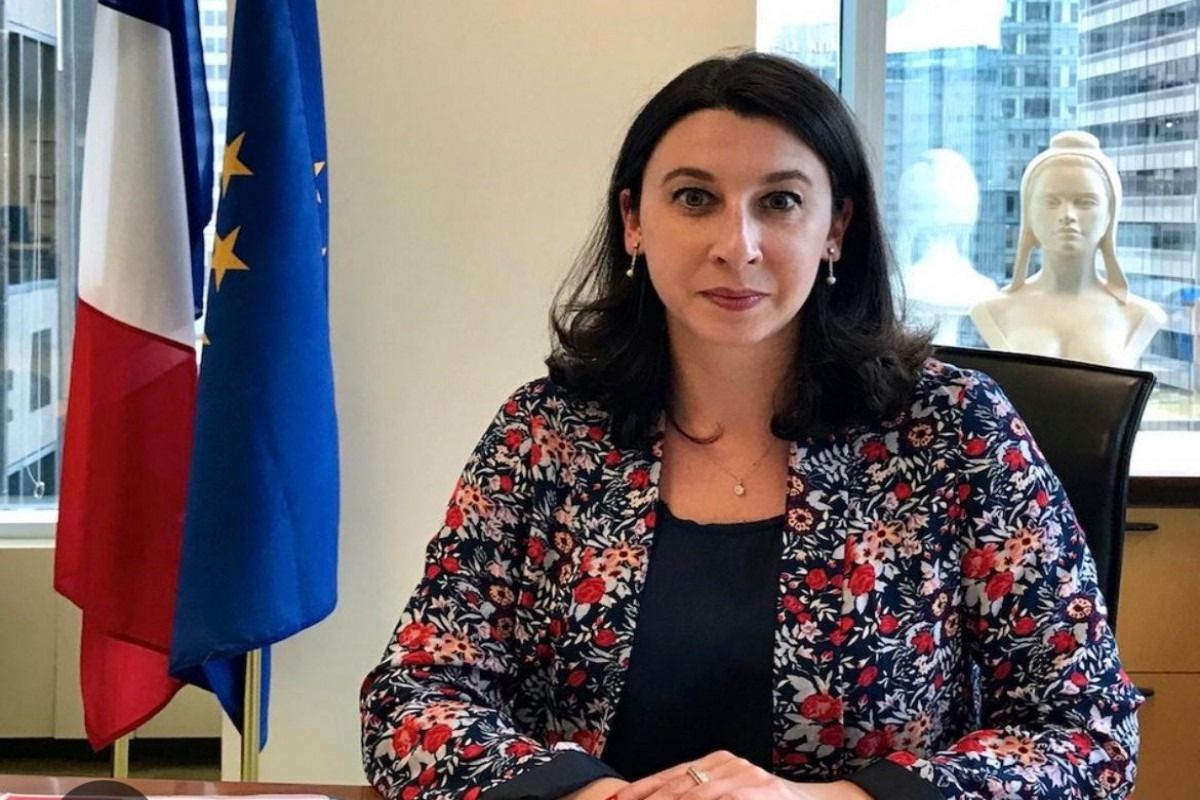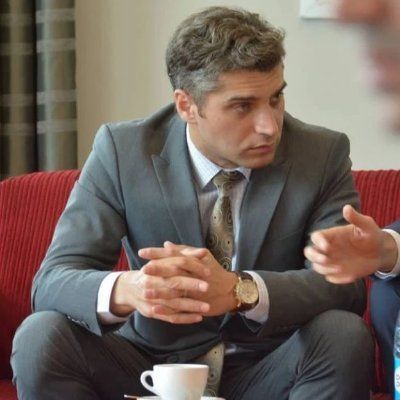New ambassador and prospect of rising new era in Paris-Baku relations [OPINION]
![New ambassador and prospect of rising new era in Paris-Baku relations [OPINION]](https://www.azernews.az/media/2025/08/20/comic_1_1.png)
France, which for a long time has taken a contrasting stance on the Garabagh issue vis-à-vis Baku, has appointed a new ambassador to Azerbaijan. Sophie Lagoutte will replace her predecessor, Anne Boillon, and has expressed considerable enthusiasm about commencing her work in the country.
But who exactly is the newly appointed ambassador to Azerbaijan? And what steps does she intend to take to help thaw the frosty relations between Azerbaijan and France?

Sophie Lagoutte has been named Ambassador Extraordinary and Plenipotentiary of the French Republic to Azerbaijan, a position officially decreed on 18 August 2025. She previously held the rank of Administratrice de l’État du deuxième grade (Administrator of the State, second grade) within the French civil service.
She entered the French diplomatic corps in 2008, after being admitted through the diplomatic service entry competition.
Her early years in the Ministry of Foreign Affairs included a role as Justice and Internal Affairs Editor within the Directorate for European Union Affairs in Paris.
After passing a subsequent competition, in 2011, she became Counsellor for Foreign Affairs and served at France’s Permanent Representation to the European Union in Brussels.
From 2015 to 2017, she was Press Officer and Political Counsellor at the French Embassy in Israel. Between 2017 and 2019, she served as Deputy Director of the Cabinet of the Minister in charge of European Affairs and as Europe Counsellor to the Minister of Foreign Affairs, back in Paris. She then served as Consul General of France in Montreal, starting in August 2019 after her nomination that June.
France–Azerbaijan relations in the context of diplomatic dynamics
In previous years, French policy tended to favour Armenia. France supported Armenian positions during the Garabagh conflict and criticised Azerbaijan’s actions, particularly during the 2023 anti-terrorist measures. Statements like “cease operations” and concerns over human rights marked a more adversarial tone. Prior to that, relations had worsened—France recalled its ambassador for consultations in April 2024, reflecting heightened diplomatic strain. Anne Bouillon took a noticeably more restrained stance, especially regarding politically sensitive topics like Garabagh. However, during a visit to Lachin, she avoided controversial terminology and did not criticise Azerbaijan, signalling a departure from earlier confrontational approaches.
France has also demonstrated a notable restraint following the recent thaw in Armenia–Azerbaijan relations, particularly in the aftermath of the Washington meeting. This suggests that, for now, Yerevan’s position remains stronger than the desires of its diaspora and lobbyists, and that the Macron administration treats the official stance of Armenia with due respect.
However, it appears that France intends to use its diplomatic presence to usher in a new era in the South Caucasus. After all, why not? Relations between Azerbaijan and France have historically been strong, and if we set aside the events of the past five years, there has been no serious tension between official Paris and Baku.
Evaluating the potential of France’s incoming ambassador in Azerbaijan
Sophie Lagoutte appears poised to adopt a more constructive and partnership-oriented approach than earlier figures. She moves away from politicised rhetoric toward tangible cooperation, especially in education, cultural exchange, and multilateral engagement. While Bouillon laid the groundwork for a more balanced tone, Lagoutte is focused on building momentum, expanding people-to-people ties, and leveraging academic and strategic partnerships.
In contrast, prior French diplomats were often viewed in Baku as advocating positions heavily tilted toward Armenia, which contributed to a diplomatic chill. Lagoutte’s opening remarks—and her early programmatic choices—suggest an intentional shift toward normalisation and mutual opportunity.
France’s role in Azerbaijan’s non-oil economy: Partnership with untapped potential
If Azerbaijan–France diplomatic relations continue on a path of normalisation, Paris could emerge as a key partner in the diversification of Azerbaijan’s economy. While hydrocarbons remain central to Baku’s economic model, the government’s 2022–2026 socio-economic development strategy places strong emphasis on non-oil growth—an area where France has deep expertise and global leadership.
One of the most promising avenues is renewable energy. French companies such as TotalEnergies are already established players in Azerbaijan’s energy landscape, but future cooperation could expand beyond oil and gas into solar, wind, and hydrogen projects. With Azerbaijan preparing to become a green energy exporter via the Black Sea cable project, French know-how in technology and financing could accelerate these ambitions.
The agriculture and agri-business sector represents another sphere for cooperation. France, with its globally renowned agri-food industries, can help modernise Azerbaijan’s food processing, quality standards, and supply chain logistics. This would not only boost exports but also add value to Azerbaijan’s rural economy, creating jobs beyond the capital.
In the realm of education and innovation, French institutions are already playing a role. The Azerbaijan–France University (UFAZ), founded in partnership with the University of Strasbourg, has trained a new generation of engineers and researchers. Expanding this model to other disciplines—digital technologies, tourism management, and environmental sciences—would strengthen Azerbaijan’s human capital base for the non-oil future.
Tourism also offers fertile ground. France is the world’s leading tourist destination, and its expertise in cultural heritage management, rural tourism, and hospitality training could be transferred to Azerbaijan, where “Tourist Villages” and regional destinations are being developed. Joint promotion campaigns, particularly targeting European travellers, could position Azerbaijan as a unique crossroads of East and West.
Finally, infrastructure and urban development are areas where French engineering and architectural firms have strong reputations. Their participation in smart city and green urban planning projects in liberated Garabagh could symbolise a new era of cooperation.
In sum, improved relations would allow France to support Azerbaijan in its critical transition toward a diversified, modern economy. Such collaboration, grounded in education, technology, and culture, could redefine the bilateral relationship from one shaped by geopolitical tensions to one driven by shared prosperity.
Here we are to serve you with news right now. It does not cost much, but worth your attention.
Choose to support open, independent, quality journalism and subscribe on a monthly basis.
By subscribing to our online newspaper, you can have full digital access to all news, analysis, and much more.
You can also follow AzerNEWS on Twitter @AzerNewsAz or Facebook @AzerNewsNewspaper
Thank you!

